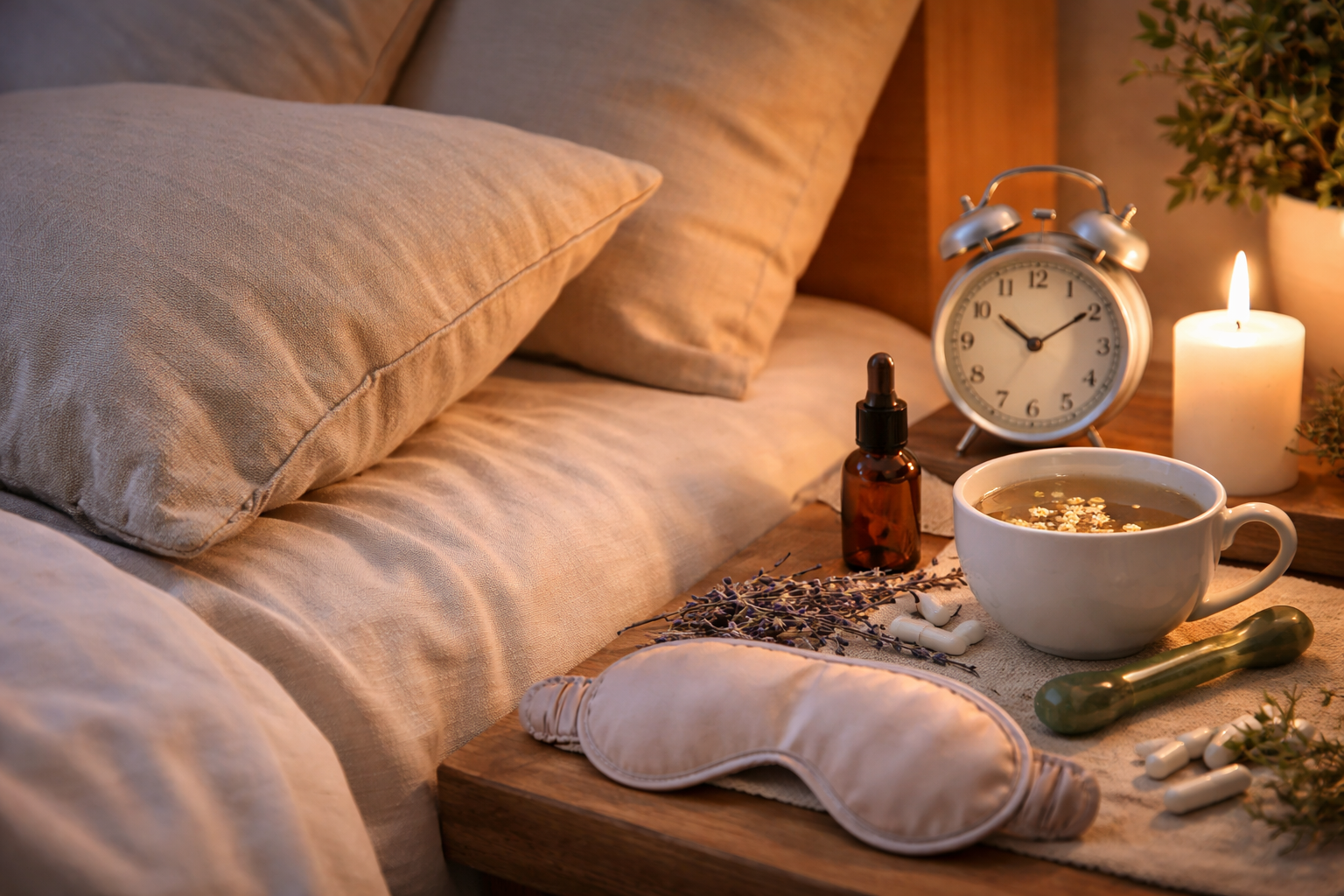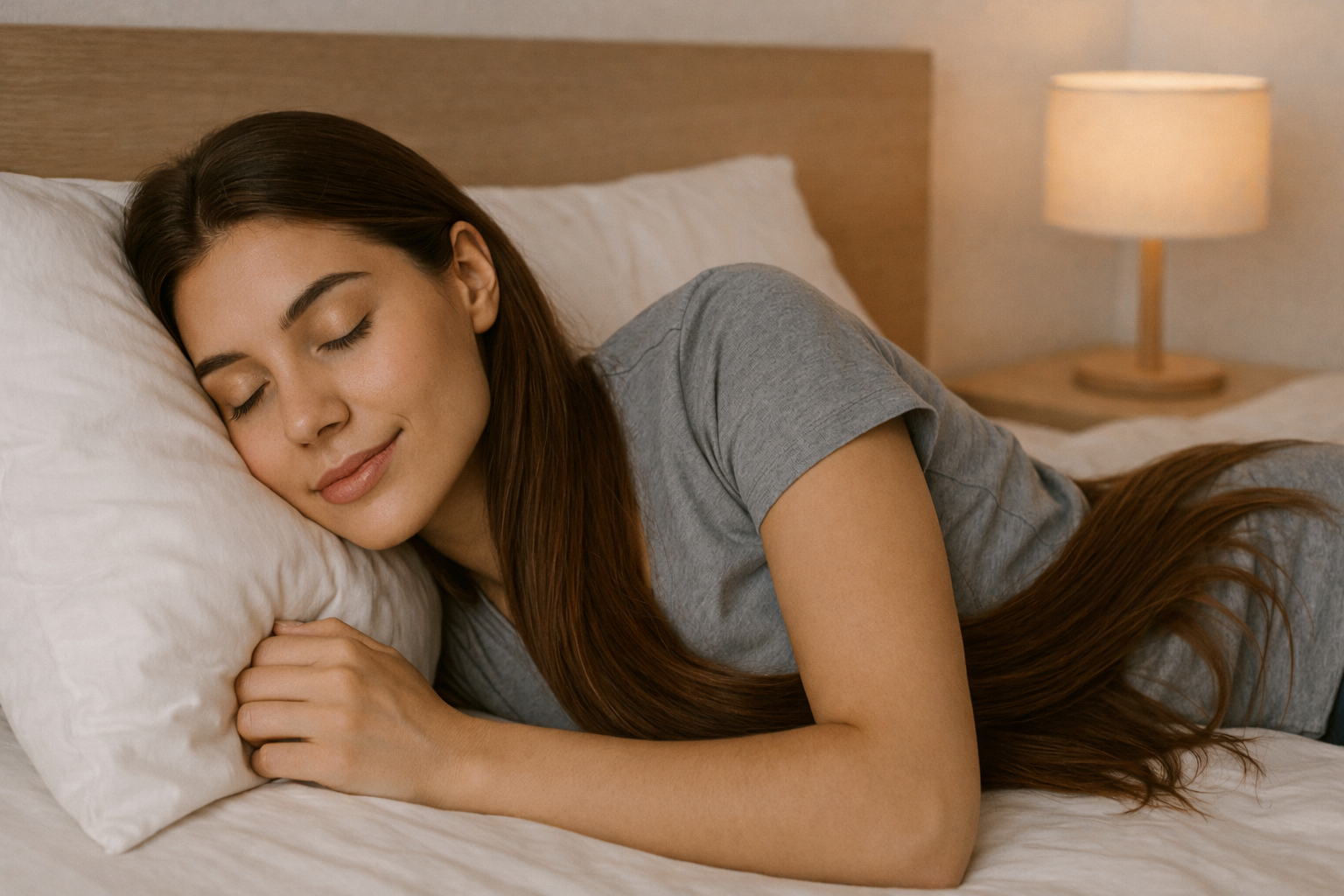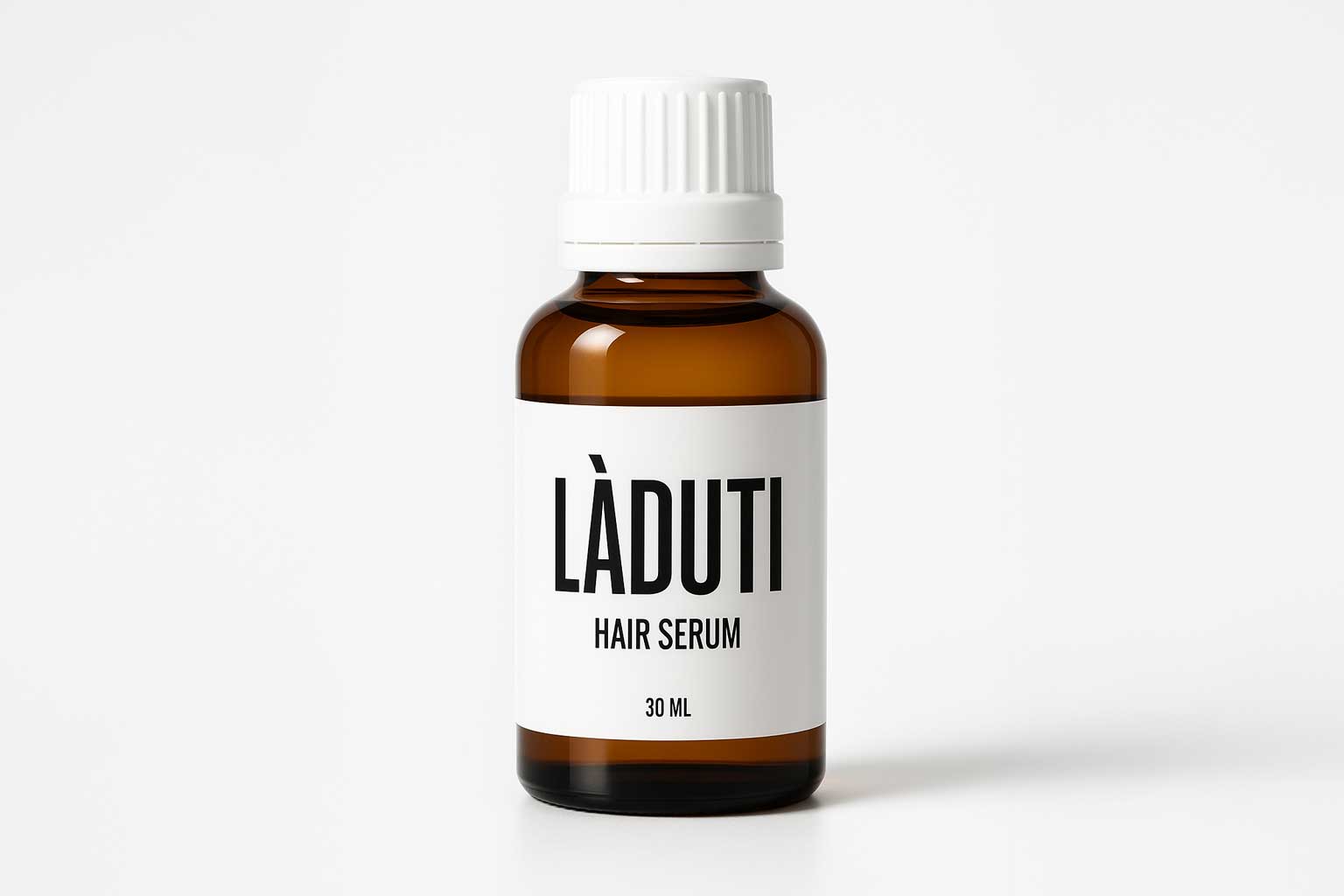Stimulate hair growth: How restful sleep promotes hair growth

Restful sleep is not only essential for energy and concentration, but also a decisive factor for the health of your hair. During the night, the body regenerates - and the hair follicles also benefit from this recovery. A lack of sleep , on the other hand, can trigger stress reactions that disrupt the hair cycle and promote hair loss. If you want to stimulate hair growth, you should therefore also focus on the quality of your sleep.
1. The connection between sleep and hair growth
Hormone balance during sleep
During the deep sleep phases, the growth hormone somatropin is released. It supports cell regeneration and activates the hair follicles. A lack of sleep can disrupt this hormone production - with direct consequences for hair growth.
Stress reduction overnight
Sufficient sleep reduces the stress hormone cortisol, which is often associated with diffuse hair loss. Having fewer stress hormones in the body indirectly supports hair health and can therefore stimulate hair growth.
Nutrient utilization during sleep
During the night, the body works at full speed:
- Iron, zinc, biotin and vitamins are utilized more efficiently.
- This not only benefits the skin and nails, but also the hair.
2. Signs that your sleep is affecting hair growth
Hair loss in the morning
If you regularly find a lot of hair on your pillow, this may be an indication of restless sleep or hormonal fluctuations.
Brittle hair
A lack of deep sleep can weaken the hair structure. The hair appears brittle, loses its shine and breaks more quickly.
Delayed hair growth
If there are insufficient recovery phases, the hair cycle also becomes unbalanced - the hair grows back more slowly.

3. Tips: Stimulate hair growth while you sleep
Develop a fixed sleep routine
If possible, go to bed at the same time and get up at the same time regularly . A stable sleep rhythm supports the internal clock - and therefore hair growth.
Optimize sleeping environment
- A dark, quiet and cool environment promotes deep sleep.
- Silk or satin pillowcases are also gentle on the hair as they minimize friction.
Nutrition & fluids
- Avoid heavy meals and alcohol shortly before going to bed.
- Make sure you eat a diet rich in biotin, zinc and omega-3 fatty acids to provide your hair and scalp with optimal nourishment.
Digital detox
Reduce screen time in the evening. The blue light from smartphones inhibits melatonin production and makes it harder to fall asleep - indirectly affecting hair growth.
Conclusion: Stimulate hair growth with sleep and natural care, but natural active ingredients as a booster
Sleep is much more than just rest - it is the basis for the regeneration of cells, hormones and hair follicles. If you get enough sleep, you give your body the opportunity to actively support hair growth and can thus stimulate hair growth. In reality, however, several factors often affect hair health at the same time: stress, diet, environmental influences or genetic predisposition.
This is precisely where it can be beneficial, in addition to healthy sleep habits, to specifically care for the scalp. The Laduti Hair Growth Serum combines selected natural active ingredients such as biotin, rosemary oil, ginseng and caffeine, which are known to promote blood circulation in the scalp and revitalize the hair follicles. While the body regenerates at night, such ingredients can provide external support during the day.
The result is a holistic strategy against hair loss: restful sleep as the foundation - combined with high-quality active ingredients that give the hair follicles additional energy. The result is not an overnight miracle, but a sustainable approach to provide hair with better growth conditions in the long term.

FAQ
How many hours of sleep do you need to stimulate hair growth?
On average, 7-9 hours per night is optimal to regenerate the hair follicles.
Can a lack of sleep actually cause hair loss?
Yes, long-term sleep deprivation increases cortisol levels and disrupts hormone balance. Both can contribute to diffuse hair loss.
Does a midday nap help to stimulate hair growth?
A short power nap is no substitute for a good night's sleep, but it can reduce stress - and this has a positive effect on hair health.
Does the sleeping position play a role?
Indirectly yes. If you sleep on rough pillowcases a lot, you risk hair breakage. Silk or satin pillowcases are gentler on hair and scalp.
Can dietary supplements before bedtime be helpful?
If there are deficiencies, zinc, iron or biotin can be useful before bedtime. They support night-time regeneration.

